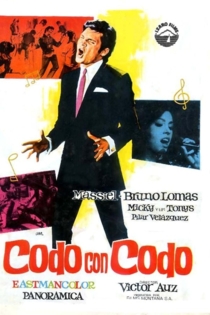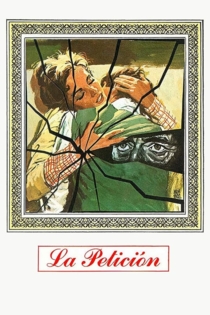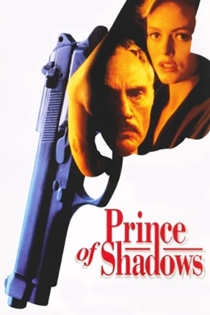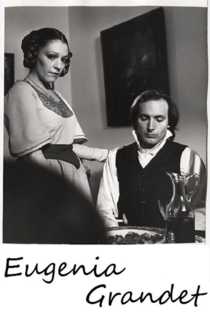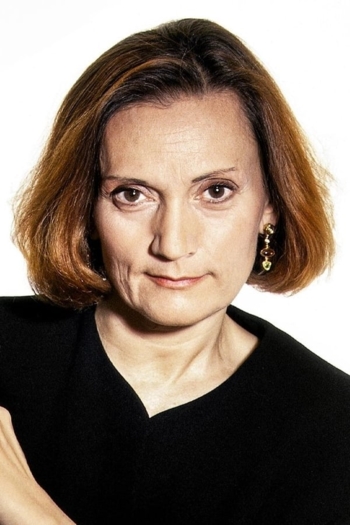
Pilar Miró
1940 - 1997The Cuenca Crime
Pilar Miró
Amparo Soler Leal, Héctor Alterio
Osa de la Vega, Cuenca, Spain, 1913. Gregorio and León, employees on the estate of the village's mayor, a powerful landowner, are arrested and accused of the murder of José María el Cepa, a shepherd who mysteriously disappeared three years earlier.
The Crime of Cuenca
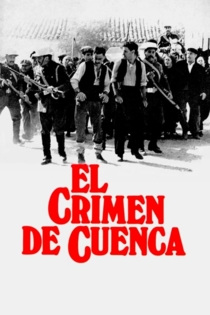
El perro del hortelano
Pilar Miró
Emma Suárez, Carmelo Gómez
Diana, the Countess of Belflor, is an intelligent, impulsive woman in love with her secretary, Teodoro. He is engaged to Marcela, one of the countess's ladies in waiting. When the countess finds out about the engagement, driven by jealousy, she does everything possible to separate the lovers.
The Dog in the Manger
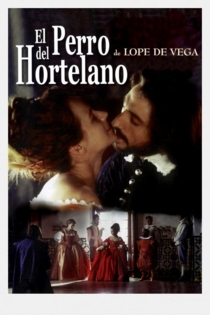
Luciano
Claudio Guerin
Moisés Menéndez, Manuel Gallardo
A sensationalist television show unravels the sordid story of Luciano Fernández and analyzes the possible motives that led him to murder a child. (Inspired by a real event that occurred in the forest of Verrières, Paris, on May 27th, 1964.)
Luciano
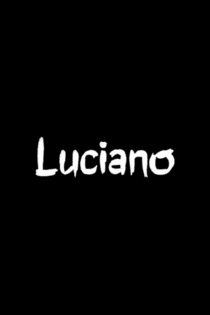
Gary Cooper, que estás en los cielos
Pilar Miró
Mercedes Sampietro, Jon Finch
A woman nearing her forties, Andrea Soriana, has always pushed aside personal questions and romantic relationships in pursuit of professional success. Now a major illness forces her to reconsider her life--work, family, friendships, men-- causing a psychological and emotional crisis pushes her toward a drastic decision.
Gary Cooper, que estás en los cielos
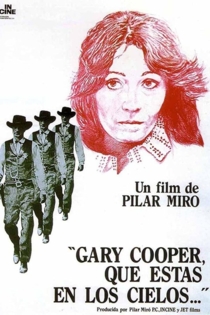
El pájaro de la felicidad
Pilar Miró
Mercedes Sampietro, Aitana Sánchez-Gijón
While some people need to be surrounded by friends to be happy, Carmen (Mercedes Sampietro) is perfectly content by herself, pursuing her vocation as an art restorer. But her bubble of isolation is punctured when she becomes the survivor of a violent assault. Shaken by the incident, Carmen decides she needs a break from it all. So begins a soul-searching journey that takes Carmen back to her hometown in southern Spain, where she contemplates the joys and sorrows of her past.
The Bird of Happiness
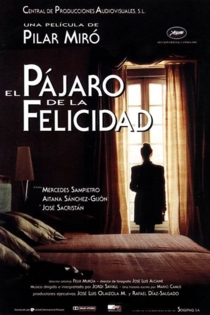
Hablamos esta noche
Pilar Miró
Víctor Valverde, Daniel Dicenta
Victor is the engineer who has set up the Nuclear Power Plant Zapater. Alongside his professional problems he also hasa difficult family situation: a divorce, a teenage homosexual son, a relationship that is not satisfactory, the emergence of a new woman. With just a few days to the inauguration, Luis Maria, an engineer close friend of Victor, responsible for a serious accident in the past and addicted to alcohol, warns of the possibility of a malfunction of the plant. Nothing guarantees the truth of this warning, but to find it out the inauguration is suspended
Hablamos esta noche
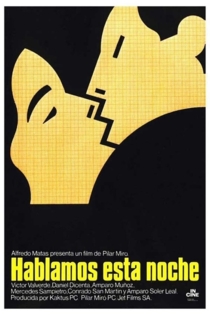
Werther
Pilar Miró
Eusebio Poncela, Mercedes Sampietro
This adaptation of Geothe's The Sorrows of Young Werther offers a chilly and remote view of love and its passions. The setting is changed to Spain, and Werther (Eusebio Poncela) has taken a job tutoring the son of an estranged husband and wife. The boy's mother is a surgeon and therefore a rather uncommon woman for her society. She and Werther gradually become romantically involved, and his feelings for her begin to run much deeper than is apparent on the surface.
Werther
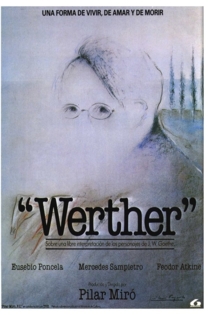
Ida y vuelta
Iván Zulueta
Mercedes Juste, Pepe Ruiz
Elena, a shy and unmarried girl, belonging to the upper middle class and somewhat marginalized from the general environment, embarks on a trip to the family farmhouse one morning, and when she returns to the city that same day, at night, she is forced to take a strange woman in her car.
Ida y vuelta
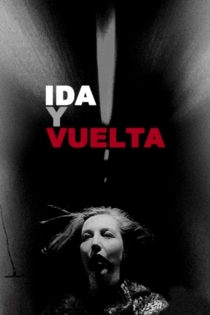
Tu nombre envenena mis sueños
Pilar Miró
Carmelo Gómez, Emma Suárez
Angel Barciela and the police inspector Francisco Valduque meets after several years in the funeral of Buendía engineer. Both expect to see Julia, the daughter of the deceased and one of those involved in the investigation.
Your Name Poisons My Dreams
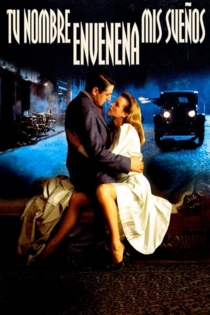
Regresa el Cepa
Víctor Matellano
Guillermo Montesinos, África Gozalbes
Forty years later, Guillermo Montesinos, the actor who played José María el Cepa in The Cuenca Crime (1980), directed by Pilar Miró, returns to the various locations where the shooting of the mythical film, narrating the infamous Grimaldos case (1910), took place.
El Cepa Returns
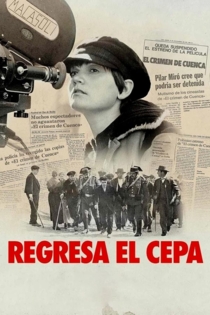
Enredando sombras
María Novaro, Julio García Espinosa
Gabriel García Márquez, René Monclova
Documentary that celebrates 100 years of cinema in Latin America and talks about the origins and the development of cinema in this subcontinent. Its structure is based in 12 short films directed by various Latin American directors. These are: 1) "Los inicios", Iván Trujillo 2) "Cuando comenzamos a hablar", María Novaro 3) "Jugando en serio", Jacobo Morales 4) "De cuerpo presente [Las espirales perpetuas del placer y el poder] Cine Mexicano [1931- 1997]", Marcela Fernández Violante 5) "Cuando quisimos ser adultos", Edmundo Aray and David Rodríguez 6) "Cinema Novo", Orlando Senna 7) "Memorias de una isla, Juan Carlos Tabío 8) "Un grito, 24 cuadros por segundo", Julio García-Espinosa 9) "El día de la independencia", Federico García 10) "¿Sólo las formas permanecen?", Fernando Birri and Pablo Rodríguez Gauregui 11) "Todo final es un principio", Andrés Marriquín.
Entangling Shadows
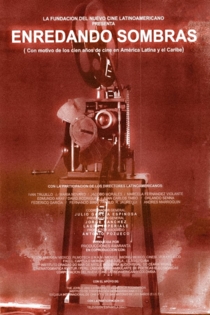
Codo con codo
Víctor Auz
Massiel, Bruno Lomas
Bruno and Micky are two young people who abandon their studies to dedicate themselves to song. When Bruno meets Mayte and becomes a fashionable singer, he forgets about his closest friends. But success is short-lived ... One of the most delirious manifestations that Spanish cinema saw of the 'ye-yé' hatching, with an absolutely priceless Micky, half-self-interpreting, like Bruno Lomas and Massiel. The story revolves around the desire to succeed that drives the trio, as well as the romantic relationships established between them. Seen today, it must be as delicious as it is moving, especially considering that it premiered a year before Massiel caused a national earthquake by winning at the Eurovision Song Contest with the famous "La, la, la".
Codo con codo
